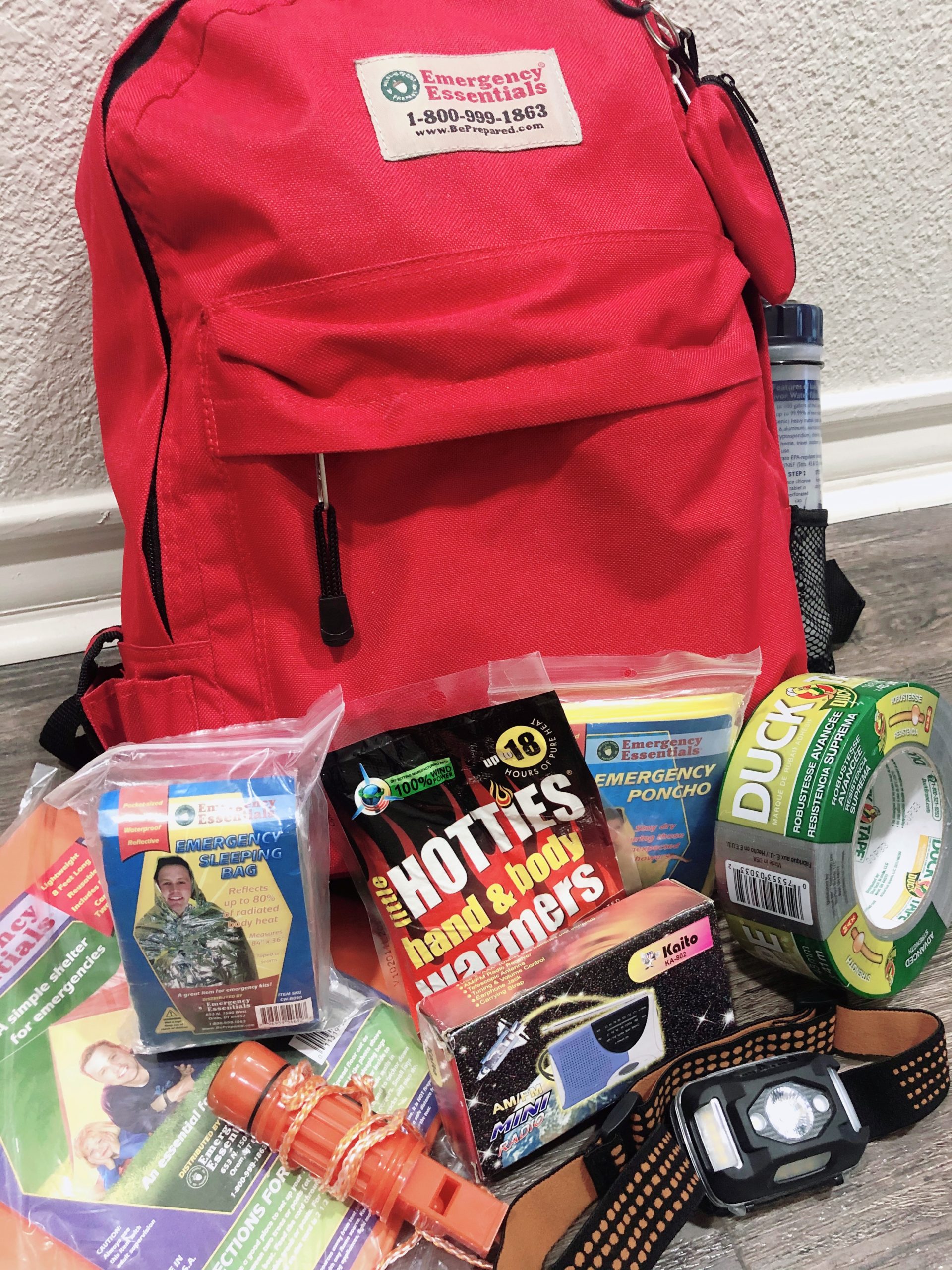
Snowpocalypse 2021. I mean COVID quarantine was just a warm up for this, right? Now that we’ve all thawed out and showered, we can reflect on what that week in the Twilight Zone taught us. Much like the Spring of 2020, I find myself evaluating my family’s emergency preparedness. I’m not even close to being a doomsday prepper, but there are a few simple things our family has done that proved helpful during both COVID and Snowvid.
Buy a little extra food during every grocery trip.
One of our biggest worries is running out of food. When you’re snowed in and/or the stores are overcrowded and understocked, the grocery situation can feel pretty grim. One of the easiest ways to prepare for this is to buy a little extra food during every grocery trip. This applies mostly to non-perishable items such as canned foods, packaged foods, pantry snacks, water bottles, personal hygiene supplies, and paper products. I also have extra beef, chicken, vegetables, fruit, and bread in the freezer. The beauty of purchasing a little during each grocery trip is that you don’t feel like you’re killing your bank account buying things all at once and you won’t contribute to any hoarding madness during an emergency (two words: toilet paper).
Make 72 hour kits.
A 72 hour kit is basically a bag of items you would need to survive for 72 hours. Here is a suggested list (based on ready.gov): change of clothes, basic toiletries, food items, water, first aid kid, hand warmers, flashlight, batteries, survival knife, mylar sleeping bag, popup/tube tent, local maps, whistle, radio, dust mask, duct tape, toilet paper, moist towelettes, garbage bags, wrench/pliers, and money in small bills. You can purchase kits that are pre-made or build your own little by little. Ideally there should be 72 hours worth of supplies for each family member. Be sure to consider any special medical needs. The idea is that in an emergency you could grab and go without having to think about packing. So the next time your pipe bursts and you have no heat, you can easily head over to a neighbor’s house.
Create a camping bin.
Store all your camping stuff in one place, ideally in one easily-accessible bin. This was driven more by a desire to be able to take off on camping trips easily but has also proved useful when we lose power. Our camping bin has a tent, flashlights, lanterns, batteries, and camp stove. When the power goes out, everything is in one place preventing a dark and wild goose chase all over the house.
Buy a solar power bank.
My son has cochlear implants that can be powered by rechargeable batteries or disposable batteries. Typically we use the rechargeable ones. We started looking for a solar power bank so we would have something to charge them with when electricity is unavailable. Solar power banks can charge many different electronic devices (phones, tablets, etc.) and can be purchased in many places. We ordered ours on Amazon.
Fill up when gas is at half a tank.
Gas shortages during and following emergencies are another huge headache. My mother-in-law gets credit for this tip: create a habit of filling your gas tank every time it hits half full. That way you consistently have half to a full tank of gas ready to go.
My new emergency preparedness goals are to learn more about long term water storage, alternative heat sources, and generators. Here’s hoping we don’t have to use this stuff on a regular basis, but as the old saying goes, “Hope for the best and prepare for the worst.” What emergency preparedness tips do you have?











